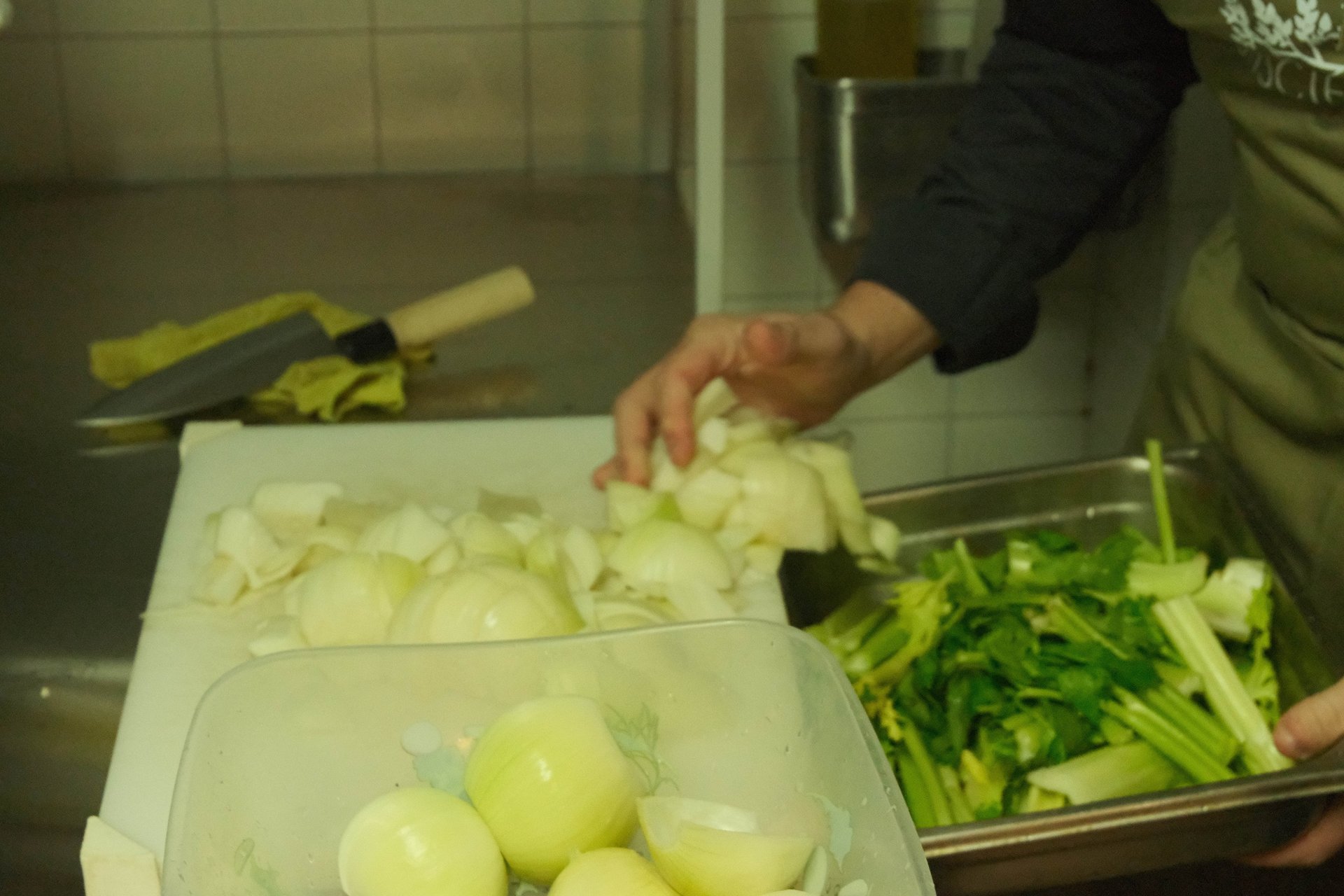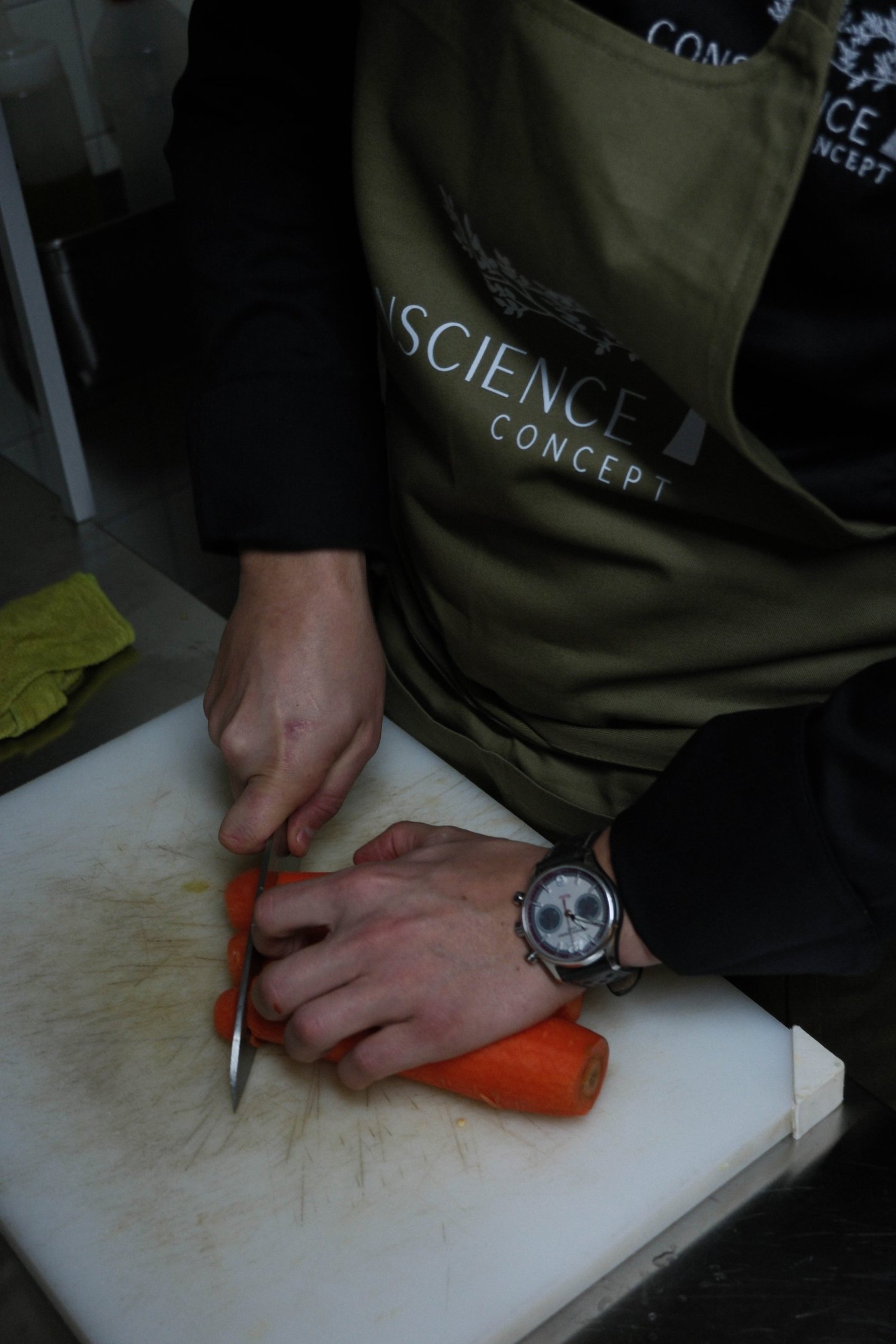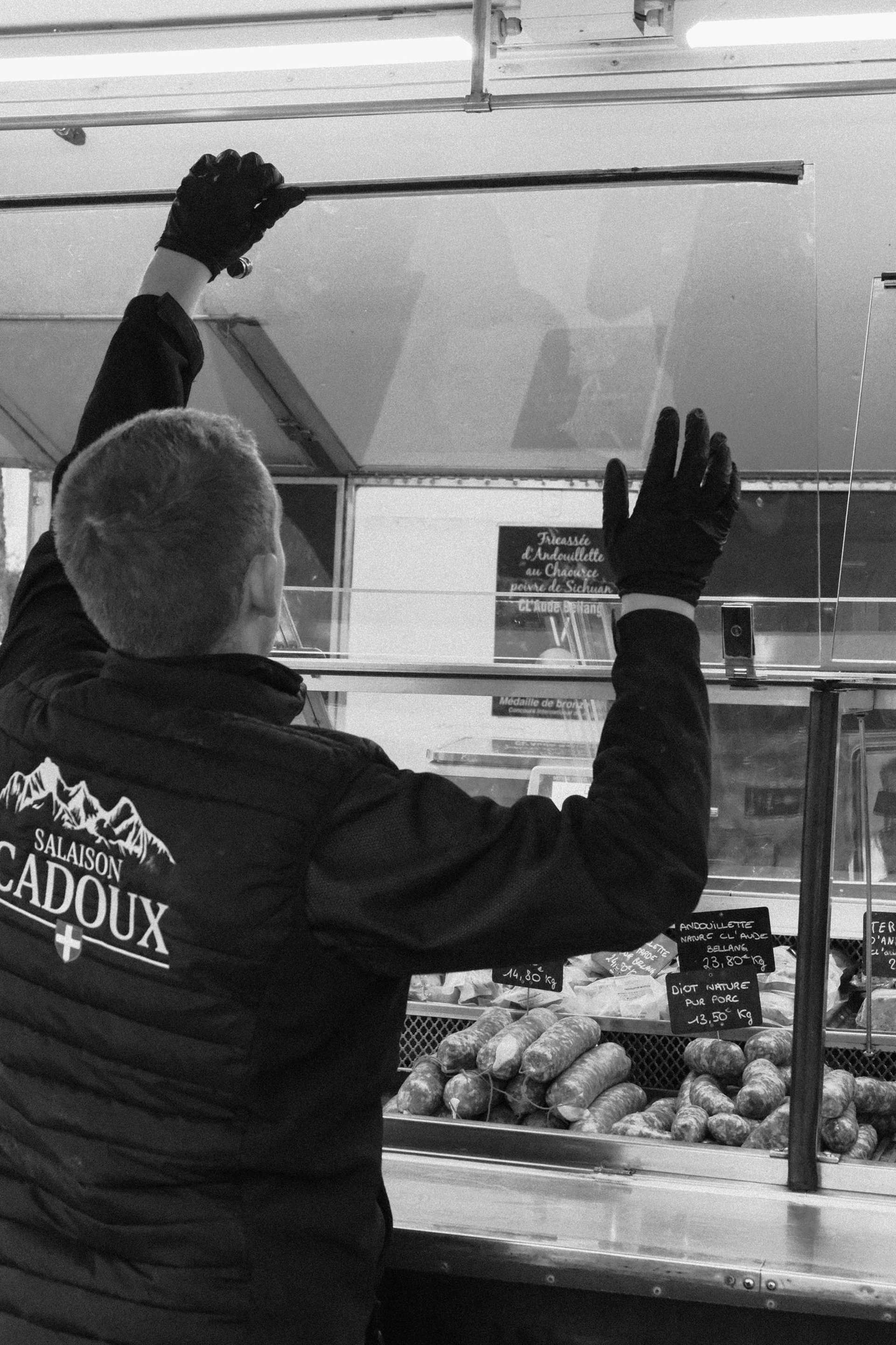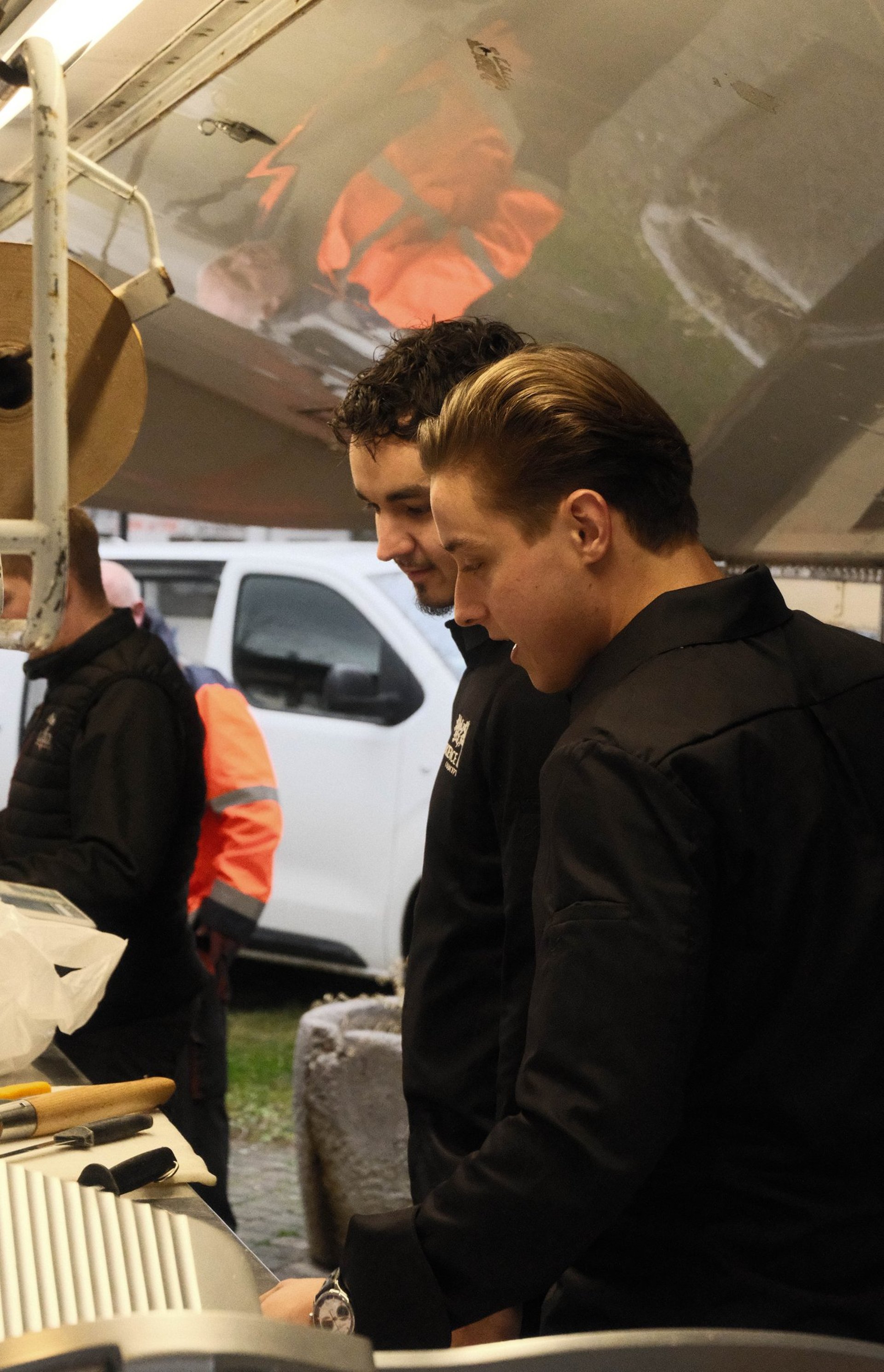
‘The world is changing, and so is the hotel and restaurant business. Be the first to adapt to this change by optimising your offer with innovation’.


Summary of the different parts of the concept :
Need specific information?
Click on the section that interests you!

Approvisionnement durable
Acheter directement auprès de producteurs locaux permet de réduire l’empreinte carbone liée au transport et de soutenir l’économie locale. Cela renforce aussi la traçabilité des produits, en s’assurant qu’ils sont cultivés de manière éthique.
Encourage organic and regenerative farming
Reduce the use of meat
Encourage menus based on plant proteins or meat from responsible farms, and limit products with a large ecological footprint (such as beef) to reduce greenhouse gas emissions.
Sustainable sourcing
Sustainable sourcing
Buying directly from local producers reduces the carbon footprint associated with transport and supports the local economy. It also reinforces the traceability of products, ensuring that they are ethically grown and in season.
Work with farmers who use sustainable farming techniques that do not use pesticides, respect soil biodiversity and limit environmental impact.

Reducing food waste
Optimize inventory management: Use advanced inventory management tools to reduce surpluses and avoid unnecessary losses. This can be done using artificial intelligence technologies or predictive management software.
Reducing food waste
Valorize unsold items
Create partnerships with associations to redistribute unsold items or include a reduced-price meal offer for products close to their expiration date
Composting
Implement a system for sorting and composting organic waste to avoid landfilling or incinerating this waste, and encourage customers to take their leftovers home in biodegradable packaging.

Creative seasonal cuisine
Based on your tastes, build on the seasonality of your products and showcase them in their entirety. Juggle between colors, textures, and expertise.
Integrate teams and retain staff
Act with participatory management and put staff on the same level, work in pairs of experience and give free rein to the creativity of the staff, always in line with the objective of the main offer.
Imagine a catering offer
Promoting dining room service
Train staff in new service methods, without the superfluous, to get to the essentials, human methods that respect staff.
Sharing corporate culture
Push the service part to act in a natural and friendly way, and share good business practices, which allow the customer to have these practices to reuse at home, but to build customer loyalty
Responsible human resources methods
Focus on the well-being of the teams, to promote their performance, integrate the teams with training at the producers, and involve the teams in each part to raise awareness of everyone's work and emphasize respect for the teams.
Countering social problems
By encouraging staff to listen and making compromises for everyone, we enable staff to have more responsibilities, make them stay longer in a company and improve everyone's performance; positive attracts positive.
A local bar offering
Building a bar offering with local alcohols, soft drinks and fruits, playing with the creativity of bartenders/aid to offer tailor-made cocktails and drinks that preserve local know-how and traditions, but with current tastes
The passion for wine
Promote regional/French wines to contribute to the local economy, share the winemaker's expertise with the entire team to share their knowledge and sell quality wines at fair prices

Reducing waste at source
Limit the use of packaging and encourage customers to bring their own containers for takeout.
Compostable and reusable packaging
Switch to eco-friendly alternatives, such as biodegradable, compostable or reusable packaging, rather than single-use plastics.
Energy optimization
Use energy-efficient kitchen equipment, such as energy-efficient ovens, smart refrigerators, and heat recovery systems
Sustainable packaging and materials
Renewable energies and energy optimization
Renewable energies
Power the restaurant with renewable energy sources (solar panels, wind or biomass) to reduce the carbon footprint.
Social and ethical responsibility
Social inclusion
To provide employment and training opportunities to people from disadvantaged backgrounds or those who are far from employment, in partnership with local associations.
Fair working conditions
Ensure employees receive fair wages, good working conditions, and advancement opportunities. Prioritize team well-being. This contributes to retention and better service quality.

Encouraging sustainable practices among customers
Implement a loyalty/discount system for those who bring their own containers or adopt eco-responsible practices (vegetarian dishes, etc.)
Transparency and awareness
Informing customers
Transparency on sourcing choices, ecological and social approaches, the environmental impacts of the dishes served; an essential phase to raise consumer awareness of these issues.

Creation of a circular economic model
Integrating technology and innovation
Connected kitchen
Resource management applications
Partnerships and collaboration
Recycle, reuse, reduce
Invest in connected equipment to monitor energy consumption in real time and reduce food waste.
Use technology platforms to efficiently manage resources, minimize waste and optimize the use of raw materials
Work with other companies in the sector to share sustainable practices and create synergies, particularly with recycling, urban agriculture or food recovery companies.
Encourage the recycling of materials, the reuse of equipment, and reduce daily water and energy consumption.

In a few words...
Design a tailor-made catering offer
To offer you, depending on the market and your needs, a precise and efficient development offer for your concept.
Conscience Concept has transformed our approach to catering. Their expertise in sustainability has improved our image while increasing our revenue. A valuable partnership!
Lenny

★★★★★
